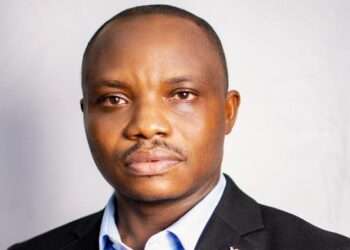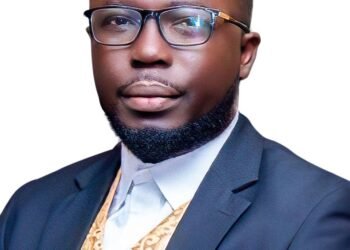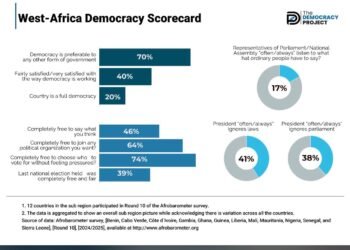The interference of politicians in matters of chieftaincy in Ghana has far-reaching consequences that affect not only the traditional institutions but also the overall well-being of the communities they serve.
Political interference in chieftaincy matters undermines the traditional authority of chiefs, who are the custodians of the cultural heritage and traditions of their communities.
When politicians interfere in the selection or installation of chiefs, it erodes the legitimacy and authority of these traditional leaders.
This can lead to a loss of respect for traditional institutions and a decline in their influence, which can have far-reaching consequences for the social and cultural fabric of the community.
Furthermore, political interference in chieftaincy matters often creates conflict and division within communities.
Different factions may support different candidates or interests, leading to tension and unrest. This can result in violent clashes, destruction of property, and even loss of lives.
The conflict can also lead to a breakdown in social cohesion, making it challenging for communities to come together to address common challenges.
Similarly, political interference in chieftaincy matters often leads to corruption and nepotism.
Politicians may use their influence to install puppet chiefs or favor certain individuals, leading to a lack of accountability and transparency in traditional institutions.
This can result in the mismanagement of resources, embezzlement, and other forms of corruption, which can have severe consequences for the community.
Moreover, political interference in chieftaincy matters can lead to the loss of cultural heritage as Chiefs are the custodians of the cultural heritage and traditions of their communities.
When politicians interfere in their selection or installation, it can lead to the suppression of traditional practices and cultural heritage.
This can result in the loss of cultural identity, which can have far-reaching consequences for the community’s social and cultural fabric.
Accordingly, the chiefs of Damongo have warned the MP for the Damongo constituency, Hon. Samuel A. Jinapor, from interfering in chieftaincy issues, citing the tendency of such an act to cause widespread discontent and disaffection among the people.
“It is disheartening to witness the interference of an elected representative in matters that should be handled within our traditional frameworks”.
Damongo Chiefs
However, Hon. Samuel Jinapor reiterated that he has no interest whatsoever in the Damongo chieftaincy affairs, as he has stated many times before.
He emphasized that, as a genuine Gonja Prince, he maintains great respect for the esteemed chieftaincy institution, the Overlord of Gonjaland, Yagbonwura Bi-kunuto Jewu Soale, and all other chiefs.
“My attention has been drawn to media publications, both mainstream and social, to the effect that I am interfering or meddling in Gonja Chieftaincy matters in general and Damongo in particular. For the records, these allegations are totally false”.
Hon. Samuel A. Jinapor
Threat To Community Development And Stability
Moreover, political interference in chieftaincy matters can destabilize communities as conflict and tension created by political interference can lead to a breakdown in law and order, making it challenging for communities to maintain peace and stability.

This can result in a decline in economic activity, a lack of investment, and a decline in the overall well-being of the community.
More so, political interference in chieftaincy matters can erode trust in both traditional and political institutions.
When politicians interfere in traditional institutions, it can lead to a loss of trust in these institutions.
Similarly, when traditional institutions are seen to be compromised by political interference, it can lead to a loss of trust in political institutions.
This can result in widespread disillusionment and a decline in civic engagement.
Likewise, political interference in chieftaincy matters may be unconstitutional.
In Ghana, the constitution recognizes the independence of traditional institutions and guarantees their autonomy.
Political interference in chieftaincy matters may violate this constitutional provision, leading to legal challenges and conflicts.
Also, political interference in chieftaincy matters can hinder development projects in communities.
When politicians focus on their interests rather than the needs of the community, it can divert attention and resources away from development projects.
This can result in a decline in the overall well-being of the community, making it challenging for communities to access basic services like healthcare, education, and sanitation.
Accordingly, Hon. Samuel Jinapor affirmed his commitment to supporting the development of the Damongo communities and not hindering their progress.
He pledged to always serve the Damongo people and the entire Ghanaian community with humility.
“My role and overarching interest, both as Member of Parliament and Minister of the Republic, is to contribute my modest quota to the development of Ghana, and my beloved constituency of Damongo. I entreat all and sundry to disregard these allegations as same is untrue”.
Hon. Samuel A. Jinapor
As such, politicians need to respect the autonomy of traditional institutions and avoid interference, allowing chiefs to perform their roles without political pressure or manipulation.
This will ensure that traditional institutions continue to play their critical role in promoting social cohesion, cultural heritage, and community development.
READ ALSO: GSE Trading Stagnates with No Share Price Movement























